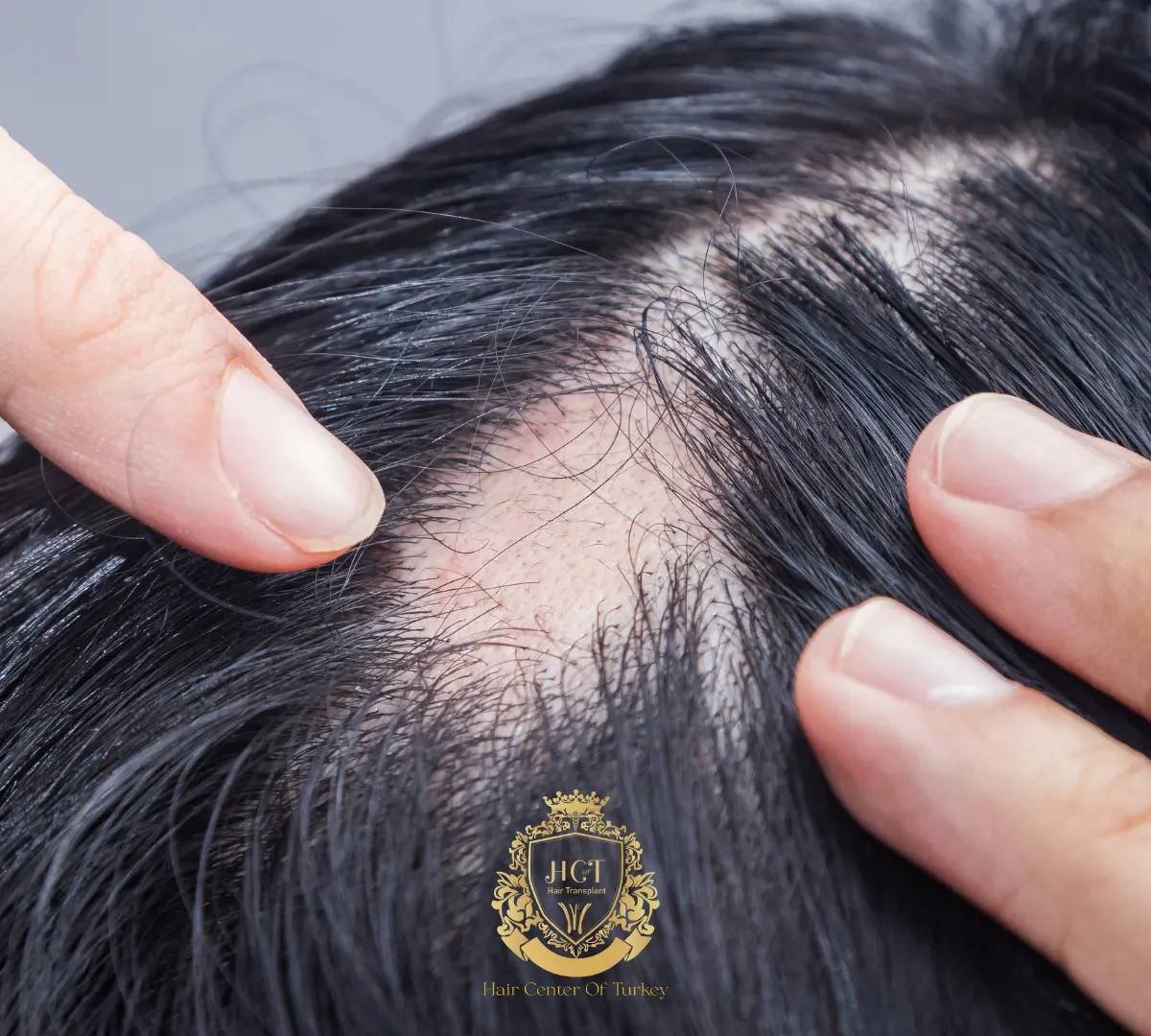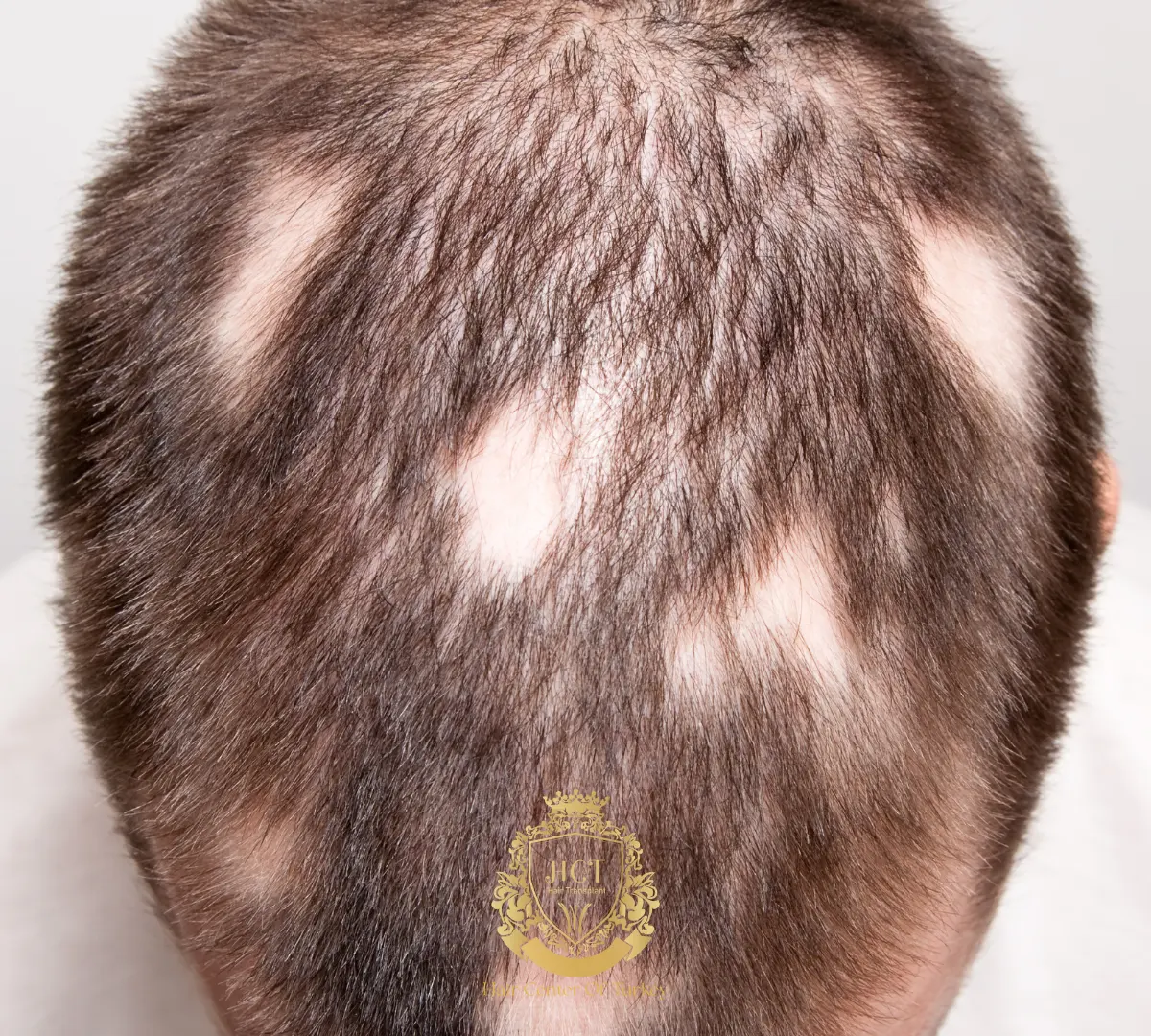Home » What is Ringworm (Alopecia Areata)?
What is Ringworm (Alopecia Areata)?
Ringworm, whose medical name is alopecia areata, is a disease that occurs as a result of sudden hair loss. This condition, which occurs in areas such as hair, eyebrows, eyelashes, eyelashes and beards, results in hair loss in a short time. Ringworm (alopecia areata) can be easily recognized when it occurs on the scalp. This disease, which takes a round or oval shape, may disappear within a certain period of time. While hair is expected to grow back in balding areas, there is also a risk of new lesions developing. Therefore, it may be necessary to carefully monitor the condition in the area.

Who Gets Ringworm (Alopecia Areata)?
Ringworm can be seen in everyone regardless of gender. This condition, which occurs in people of all ages, is generally more common in individuals younger than 40 years of age. When looking at the people affected by ringworm, the fact that at least 70 out of 100 people are younger than 40 supports this statistic. Ringworm, which affects men and women equally, is more common in men. Ringworm (alopecia areata) also has a genetic predisposition. Therefore, it may be more common in people with a family history of ringworm.

What Causes Ringworm (Alopecia Areata)?
Ringworm can have more than one cause. Therefore, there is no clear answer to the question “what causes ringworm (alopecia areata)?”. Generally, immune-related problems called autoimmune cause ringworm. Autoimmune occurs when the body recognizes its own cells and tissues as foreign.
People who have problems in the immune system experience attacks on their own cells. Ringworm, one of these attacks, affects the hair follicles, preventing hair growth and causing hair loss.
Ringworm, which also affects genetic factors, can also be seen in relatives of people suffering from this disease. In fact, the risk of occurrence in these people is 3 to 6 times higher. This situation also supports the effect of genetic factors; It can cause conditions such as eczema, psoriasis, hay fever, lupus, vitiligo, atopic allergic asthma, Addison’s disease, and chronic inflammatory thyroid disease.
How to Treat Ringworm (Alopecia Areata)?
Ringworm treatment should be performed by a specialist doctor. The treatment process, which is usually planned by a dermatologist, should be carried out carefully and meticulously. The first priority in the treatment of ringworm is to prevent the progression of the disease and reduce the impact of symptoms. This also depends on the degree of ringworm. If the patient’s discomfort is mild, no treatment may be needed. In addition, the hair that has fallen out in the area grows back on its own.
Patients with more advanced conditions may be advised to use steroid medications. While cream-based medications are applied first, they can be injected into the patient’s scalp in the later stages. It should be known that especially the drugs applied around the eyes require a separate sensitivity.
Ringworm can be treated not only with steroid medications, but also with different methods called immunotherapy. In order to find the best solution for the patient’s health condition, it is important to make sure that the right doctor is chosen. If the patient’s hair loss has reached serious levels due to alopecia areata, he/she may need to resort to hair transplant surgery.
F.A.Q. (Frequently Asked Questions)


